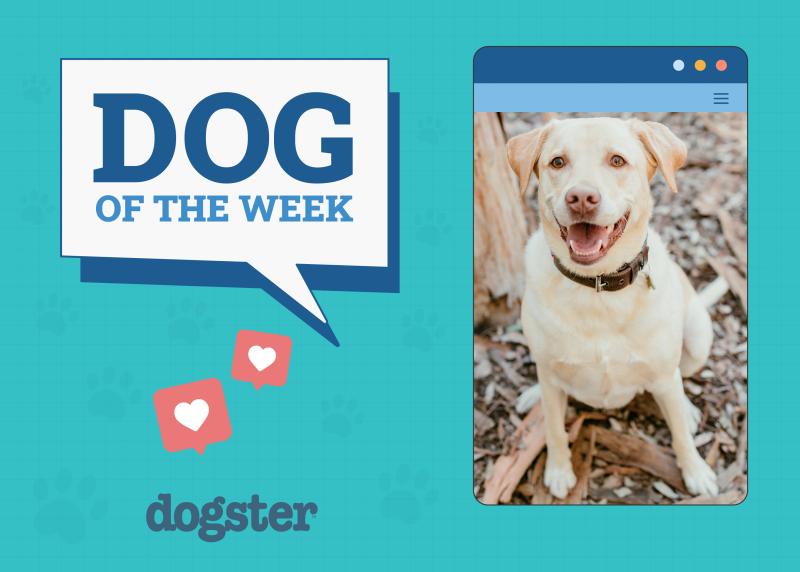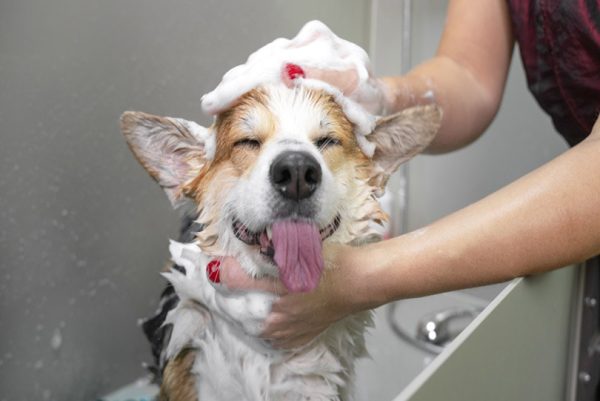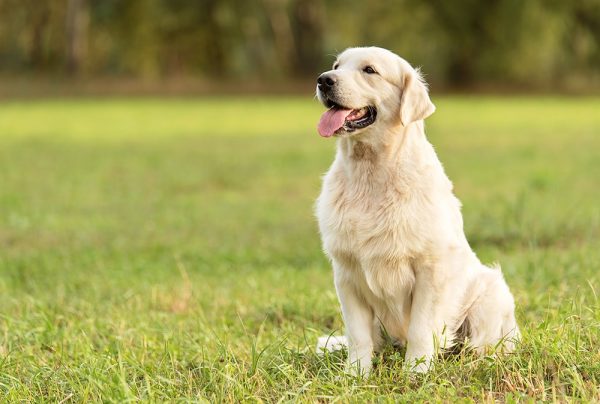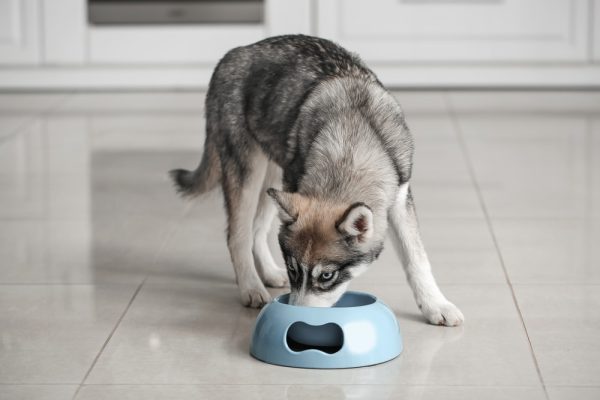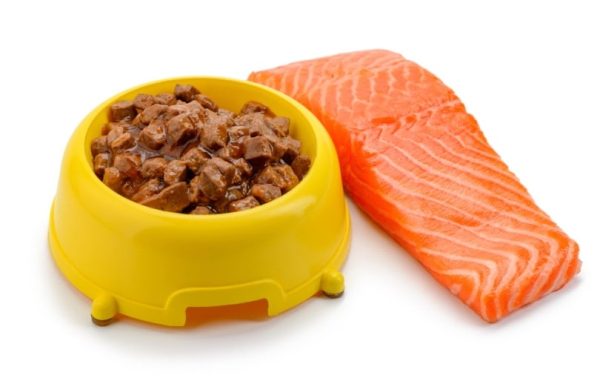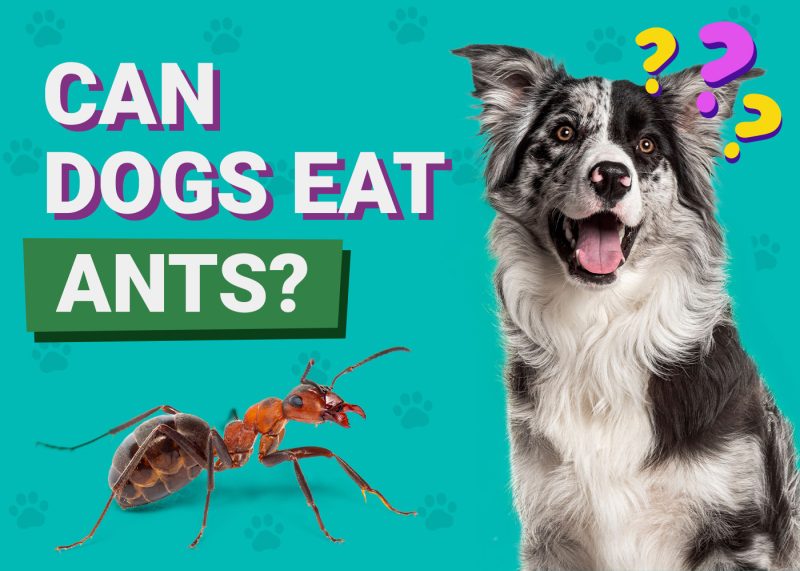In this article
View 3 More +Nuts are nutritional powerhouses, providing humans with a hefty dose of “good fats” and even potentially improving heart health.1 As nutritious as they may be for humans, are nuts something you can share with your pup?
The answer isn’t a simple “yes” or “no”, as some are non-toxic and others are potentially deadly. After some research, we’ve concluded that it’s best to keep the nuts on your plate and you’re your pup more species-appropriate treats instead. For this article, we will use a loose definition of “nuts” as some of the produce referred to as nuts are in fact seeds or legumes. Read on to learn more.

Why Shouldn’t Dogs Eat Nuts?
While some nuts and nut butters can safely be offered to dogs, it’s really important to consider the risks and potential toxicity.
1. High in Calories
If you’ve done any amount of calorie counting or nutritional label reading in your life, you know how deceiving a handful of nuts can be. They are one of the most calorically dense foods, and without proper portion control, it’s really easy to ingest hundreds of calories with just a few bites.
Dogs that are overweight or prone to weight gain can easily go over their daily calorie target with just a few nuts.
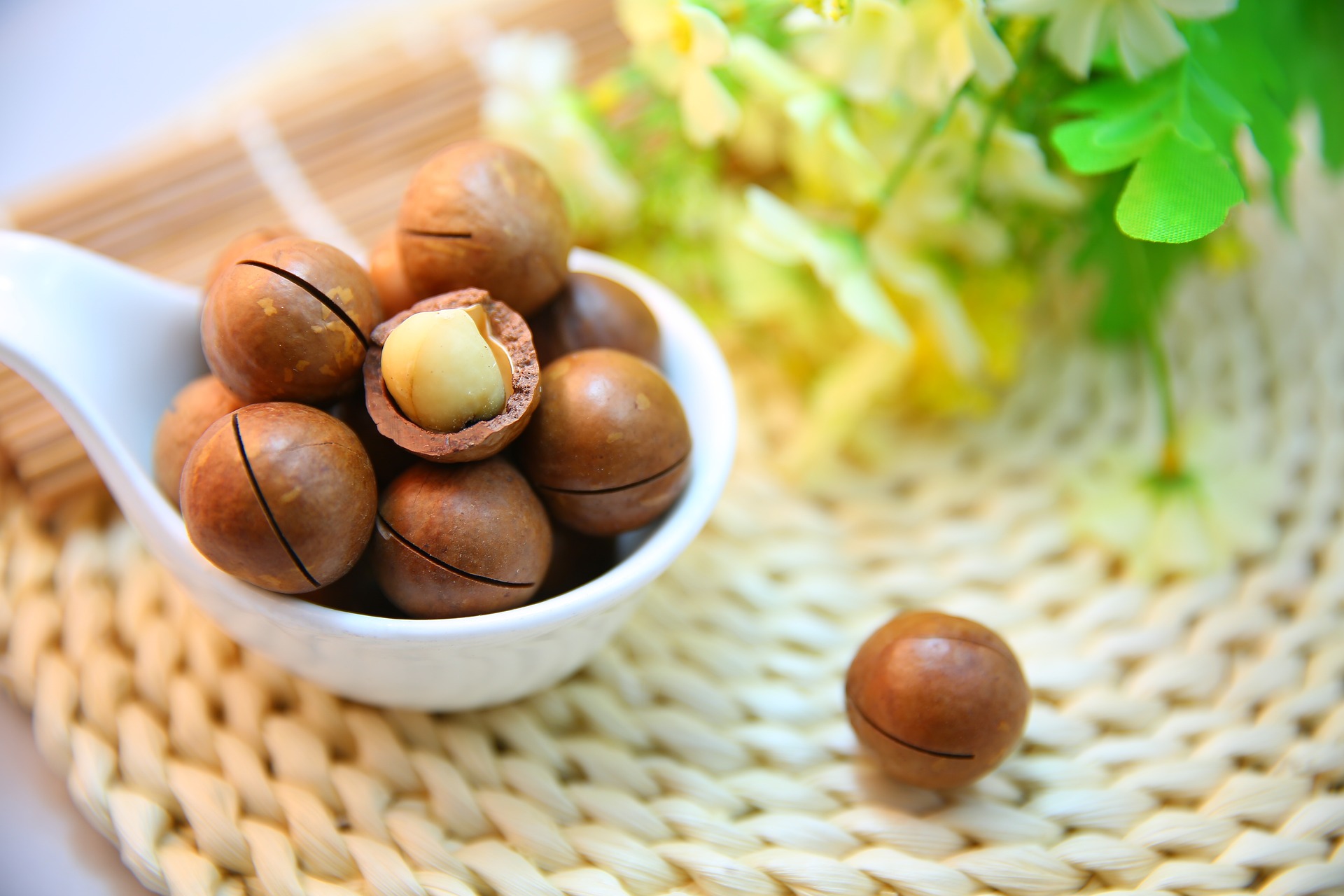
2. High in Fat
Another downfall of feeding nuts to dogs is that they’re high in fat. This high fat content can cause gastrointestinal upset in pups with sensitive stomachs. Fatty meals may also cause pancreatitis, a serious illness noted by inflammation of the pancreas. Though this condition is treatable, it can become potentially life-threatening.
3. Could Have Toxic Coating
Nuts are sometimes coated in spices to boost their flavor. These spices, like cocoa or garlic, can be highly toxic for your dog.
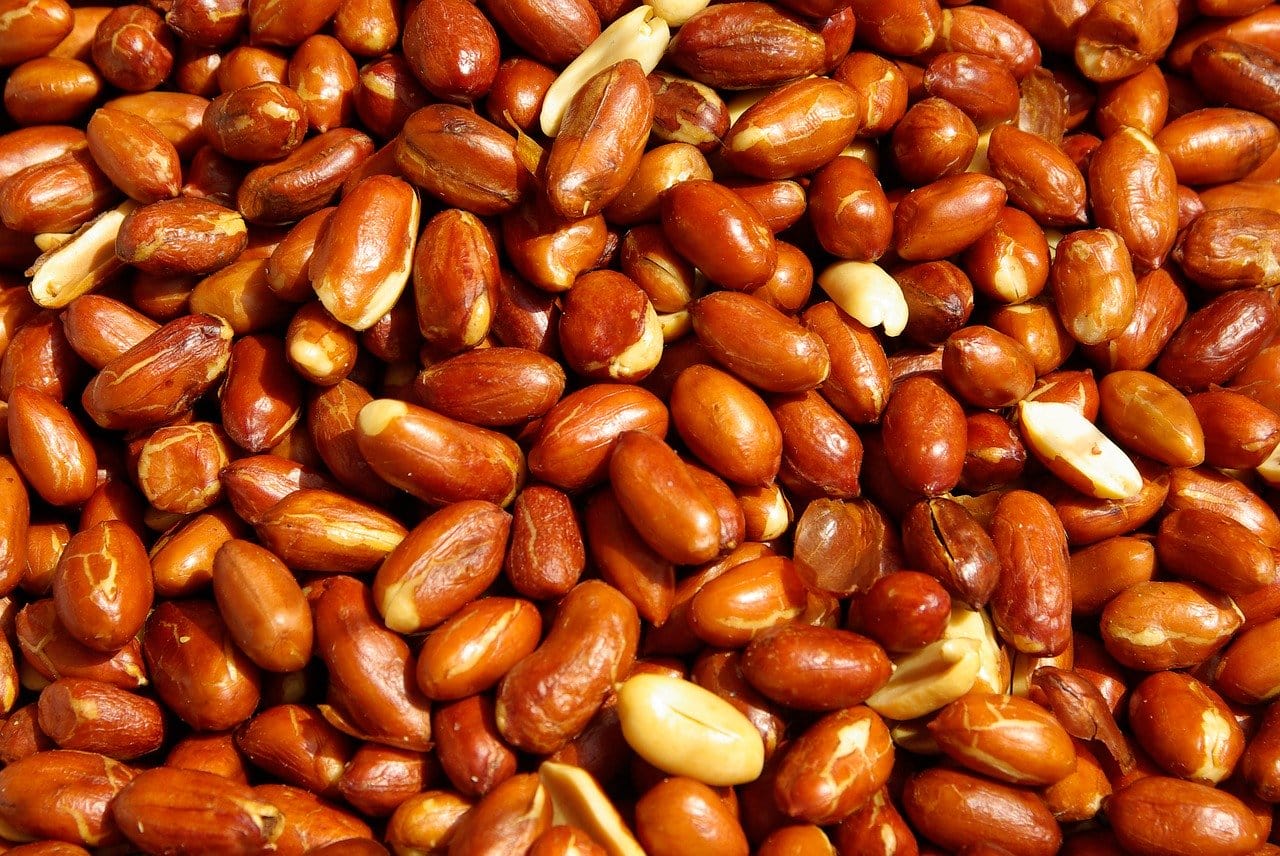
4. Aren’t Easy to Eat
Though nuts are relatively small, they can pose a choking hazard if your dog doesn’t know how to eat them properly and tries to swallow them whole.
5. Mycotoxins
Nuts may be a suitable substrate for fungal growth under the right conditions. Aspergillus is a type of fungus found in soils that can cause disease in crops, including tree nuts. These fungi can also produce harmful compounds known as mycotoxins, which can be highly poisonous for your dog.
If you need to speak with a vet but can't get to one, head over to PangoVet. It's our online service where you can talk to a vet online and get the advice you need for your pet — all at an affordable price!

Are There Benefits to Offering Dogs Nuts?
While nuts are highly nutritious for humans, there really aren’t any benefits in offering nuts to your dog. Nut butters can be a great way to encourage your pet to take their medication or a delicious treat, however, they have to be made with non-toxic nuts and not contain any potentially harmful ingredients such as added sugars and xylitol.
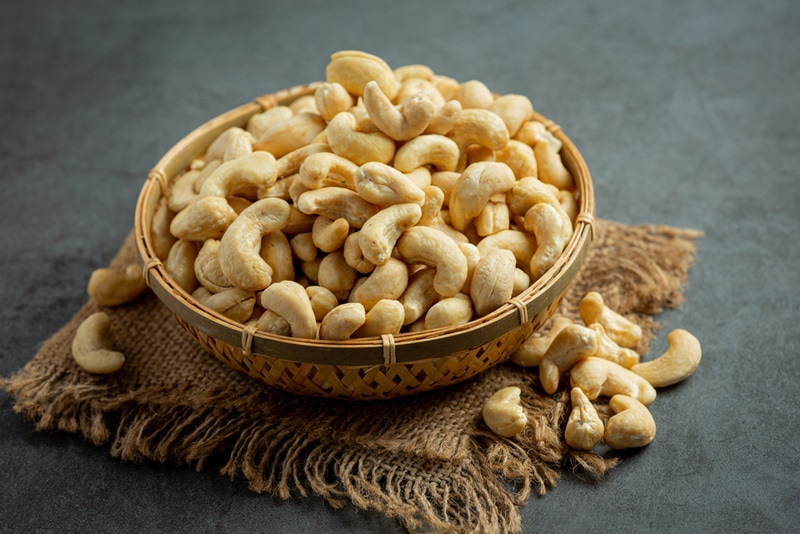

What Nuts Are Toxic and Non-Toxic for Dogs?
While many nuts are non-toxic, some can be extremely toxic and be life-threatening. As a dog owner, it’s important you know the difference so you can react appropriately if your dog gets into your stash of nuts.
Peanuts & Peanut Butter
Shelled, raw peanuts are okay to offer occasionally. They must be shelled as their hulls are not easily digestible and can cause gastrointestinal issues and a choking risk.
Peanut butter is a great motivator for getting your dog to take their medication, but like other nuts, it’s also high in fat and calories, so it shouldn’t be something you offer often. You should only offer PB that’s free of added sugars and xylitol. Xylitol is highly dangerous for dogs and can cause dangerously low blood sugar and liver damage.
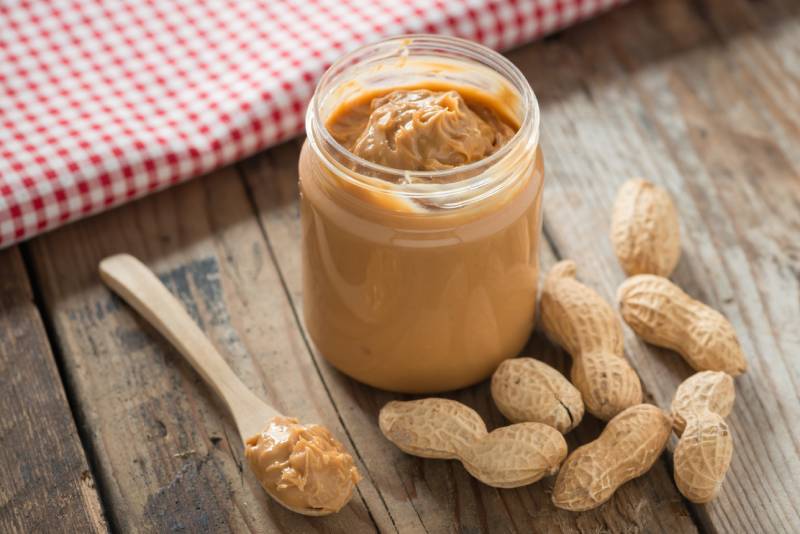
Walnuts
We recommend steering clear of walnuts altogether, as some varieties are toxic for dogs. While English walnuts are okay in very small quantities, black walnuts contain a toxin known as juglone, which can cause severe gastrointestinal upset. This may be one of several toxic components of this nut. Other signs of black walnut toxicity include weakness, tremors, wobbly gait, and seizures.
Almonds
Almonds are particularly hazardous for dogs due to their shape, size, and density. They can easily pose a choking or obstruction hazard, so it’s best to avoid giving these nuts to your dog if you can. Your pup can, however, have a lick of almond butter with their medication, provided it has no harmful additives like sugar or xylitol.
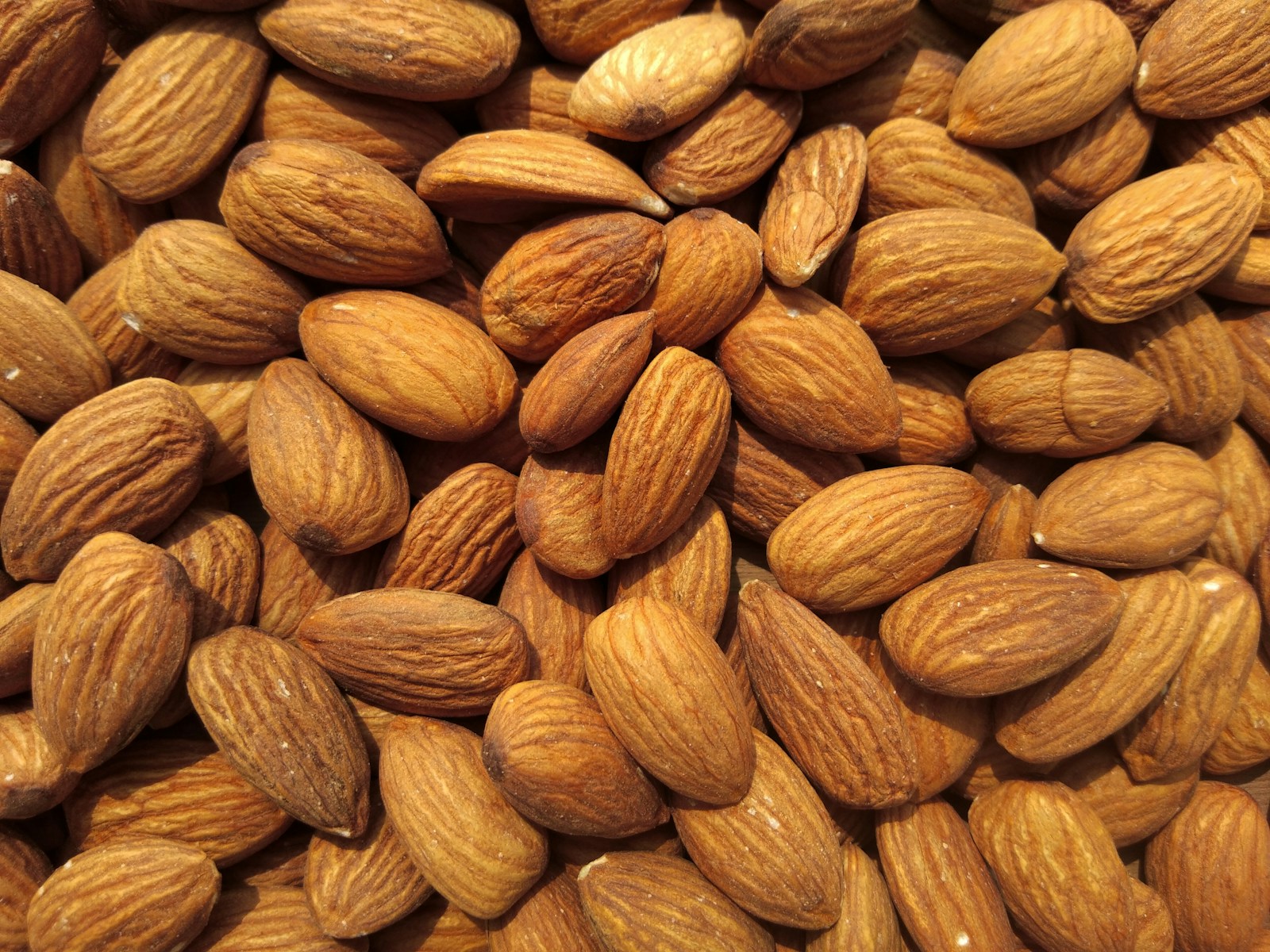
Macadamia Nuts
Macadamia nuts are highly toxic for dogs. Toxic side effects are possible at doses as low as 5 nuts for a 44-pound dog. Lethargy and vomiting are commonly seen first, this can then progress to weakness and a wobbly gait. Your dog will need veterinary care if they are showing signs within 3-12 hours of eating macadamia nuts. However, if you know your dog has recently eaten macadamia nuts, your vet may be able to induce vomiting to reduce some of the toxic effects. In either case, prompt treatment is essential for the best outcomes for your dog.
Pecans
We recommend steering clear of pecans as, while they are not considered highly toxic, they do contain the compound known as juglone, which is also found in the black walnut (albeit at lower concentrations). The oils can be irritating to the skin and gastrointestinal tract, leading to rashes, vomiting, and diarrhea.
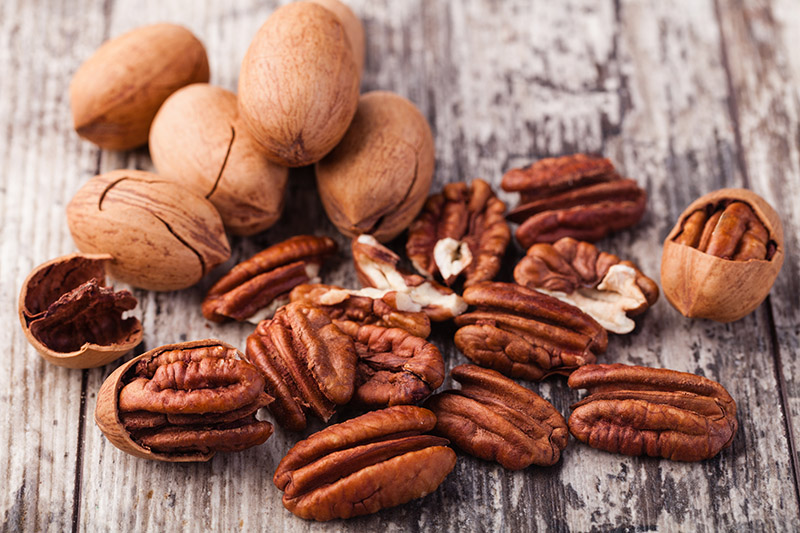
Pistachios
Pistachios are technically non-toxic, though they may contain substances that could be potentially harmful to your pet. Urushiol, also found in poison ivy, can cause allergy-like responses in some dogs, though store-bought pistachios are typically steamed or roasted to destroy this compound. Also, pistachios can pose an obstruction risk, especially if eaten with their shells.
Cashews
Cashews are non-toxic, but like other non-toxic nuts, they shouldn’t really be offered due to their high fat and calorie content. As with almond and peanut butter, cashew butter can be used to coax your pup into taking their medication, but it mustn’t have toxic ingredients like xylitol. Like pistachios, raw cashews in their shell contain urushiol, but are sold in a form that minimizes this.
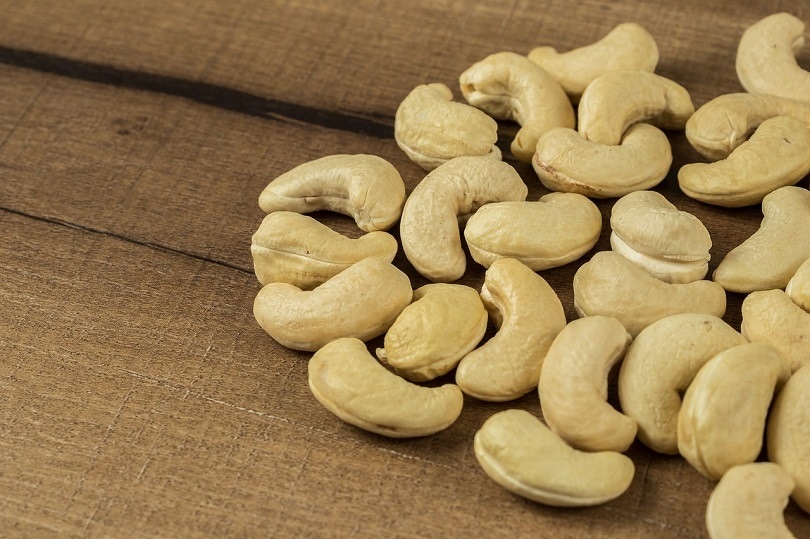
Safer Human Foods to Offer Instead
If you want to offer your dog something off your plate regularly, stick to one of these more species-appropriate snacks instead.
- Apples
- Bananas
- Broccoli
- Carrots
- Cooked eggs
- Cooked plain chicken
- Cooked rice
- Cooked sweet potatoes
- Cranberries
- Small amount of pain dairy (if your dog is not intolerant) e.g. plain Greek yogurt, cottage cheese.
- Pumpkin
- Raspberries
- Watermelon
Remember, treats should only make up 10% of your dog’s daily diet, so as yummy as your pet may find these snacks, only offer them in moderation. Always check with your vet before introducing any new foods.

Conclusion
While many nuts are non-toxic for dogs, there aren’t many documented benefits in offering them to your pet. Dog owners need to familiarize themselves with the toxicity level of the nuts they plan on storing in their homes. Hence, they know whether or not a veterinarian needs to be called if their pet accidentally eats some. Macadamia nuts and black walnuts are the most toxic varieties.
Nuts contain a high amount of oils, calories, and fats, which can cause issues for your pup. A diet too rich in fats can cause gastrointestinal problems and even lead to pancreatitis, so it’s best to stick to more species-appropriate snacks for your dog.
See also:
- Can Dogs Eat Peanut Butter Crackers? Vet-Approved Facts
- Can Dogs Be Allergic to Peanut Butter? (Vet Answer)
Featured Image Credit: heecehil, Pixabay




